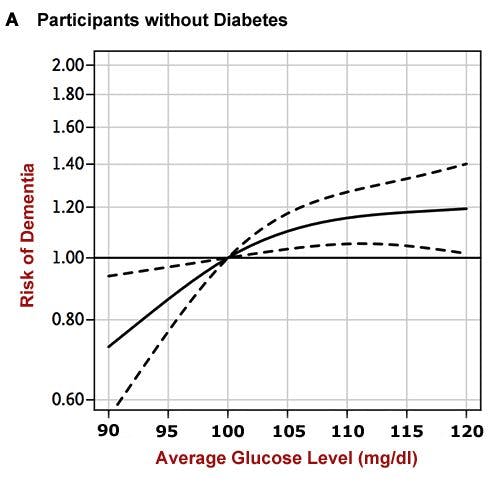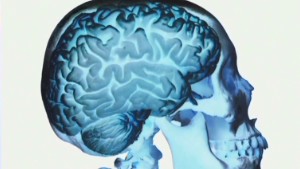The New Psychiatry: Psychoneuroimmunology:
The New Psychiatry: Psychoneuroimmunology
This article first appeared on Mercola.com.
Psychoneuroimmunology. This is what I aim to practice. Medical terms of this length command our respect for the interconnectedness of different subspecialties, for the futile segmentation and compartmentalization of the body into different organ systems.
As discussed in this previous article I wrote for Dr. Mercola, deconstructing the serotonin model of depression, psychiatry is in a crisis. It can no longer stand on its own, throwing more and more medications at its perceived target.
It seems, therefore, fitting that psychiatry would follow the investigative path of other lifestyle-triggered chronic diseases such as cancer, autoimmunity, and heart disease. There already exists a bidirectional relationship between all of the major chronic diseases and psychiatric diagnoses (patients who struggle with chronic diseases are more likely to be depressed and vice versa).
The role of inflammation, across these disease states, is better elucidated each day. Let’s deconstruct what is known as it applies to mental health.
Inflammation and Depression
In this model, depression is a non-specific fever that tells us little about what is actually causing the body to react and protect itself in this way. The body is “hot” and we need to understand why. Depressive symptoms are the manifestation of many downstream effects on hormones and neurotransmitters, but if we swim up to the source, we will find a river of inflammatory markers coursing by.
The source itself may be singularly or multiply-focused as stress, dietary, and toxic exposures, and infection, as we will discuss here. As explored in the medical literature,1 inflammation appears to be a highly relevant determinant of depressive symptoms such as flat mood, slowed thinking, avoidance, alterations in perception, and metabolic changes. We understand this relationship based on:
Biomarkers
Psychiatrists have longed to be legitimized in their role as science-based physicians. Despite this, there are no diagnostic tests that are validated for the assessment of psychiatric pathology. In the practice of functional medicine, however, the diagnosis becomes secondary to the individual’s personalized interplay of factors and the “biomarkers” that can light the way toward healing.
Cytokines in the blood, or inflammatory messengers, such as CRP, IL-1, IL-6, and TNF-alpha have taken the stage as predictive2 and linearly3 correlative with depression.
Researchers have validated4 that, in melancholic depression, bipolar disorder, and postpartum depression, white blood cells called monocytes express pro-inflammatory genes leading to secretion of cytokines, while simultaneously leading to decreased cortisol sensitivity, the body’s stress hormone and inflammatory buffer – a feedforward cycle.
Once triggered in the body, these inflammatory agents transfer information to the nervous system, typically through stimulation of major nerves such as the vagus, which connects5 the gut and brain. Specialized cells called microglia in the brain represent the brain’s immune hubs and are activated in
inflammatory states.
In activated microglia, an enzyme called IDO (indoleamine 2 3-dioxygenase) has been shown6 to direct tryptophan away from the production of serotonin and melatonin and towards the production of an NMDA agonist called quinolinic acid that may be responsible for symptoms of anxiety and agitation.
These are just some of the changes that may conspire to let your brain in on what your body may know is wrong.
Animal Models
While an animal model of depression may seem like an absurd idea, currently, lipopolysaccharide (LPS), an endotoxin produced by gram-negative bacteria, is used to induce these clinical models in rodents.
Mice that lack IL1-B7 (a cytokine that mediates inflammatory response), however, are protected against these LPS-mediated “depressive symptoms” (i.e., as demonstrated by loss of interest in sugar water), supporting the critical role of inflammatory messengers in the depressogenic cascade.
Pharmacology
One of the most predictable side effects of interferon therapy for Hepatitis C is depression. In fact, 45 percent of patients develop depression8 with interferon treatment, which appears to be related to elevated levels of inflammatory cytokines IL-6 and TNF.
A number of trials have examined the role of anti-inflammatory agents in the treatment of depression. In one recent trial,9 a subset of patients resistant to antidepressant treatment and identified by serum markers of inflammation, most notably C-reactive protein >3mg/L, were responsive to treatment with the TNF-alpha antagonist (anti-inflammatory) infliximab (Remicade).
The pain-killer celecoxib (Celebrex) has been found in randomized, placebo-controlled trials10 to be superior to placebo in antidepressant augmentation. In the setting of psoriasis treatment with etanercept (Enbrel), mood was improved11independent of psoriatic relief.
There has even been suggestion that the mechanism of action of antidepressants is through an anti-inflammatory effect, particularly on IL6. However, these observational studies have been largely inconclusive.12
The Gut-Brain Dance
What is driving this inflammation? How does it get kicked off? And how does it induce depression? With the limited clinical applications and revelations that came with the completion of the Human Genome Project in 2002, we have begun to focus on where we have outsourced our physiologic functions.
The microbiome has become an important consideration, and particularly, the gut, which houses at least 10 times as many human cells as there are in our bodies, and 150 times as many genes as are in our genome. These microbes control many vital operations and are responsible for synthesis of neuroactive and nutritional compounds, for immune modulation, and for inflammatory signaling.
Our greatest interface with the environment is the 70+ percent of your immune system housed in your gut wall. Disturbances in gut microbiota, autoimmunity, head injury, childbirth, and infection can all trigger systemic inflammation. This immune activity takes the form of a TH1 dominant cellular response in which macrophages produce ILI, IL6, and TNFalpha, all of which have been shown to be elevated in the setting of depression.
The communication between our guts and brains appears to rely, in part, on the vagus nerve, and is bidirectional in nature as reported in this 12-year prospective study13 that looked at relationships between gut problems like irritable bowel disease, anxiety, and depression.
The stage is set for the microbiome when we descend the vaginal canal and are breastfed. Unfortunately, the rate of cesarean sections doubled from 1990-2008, comprising one-third of US births. Maternal inflammatory states and diseases such as type 1 diabetes can increase risk of surgical birth, as can interventions such as ultrasound, 14 monitoring, and the epidural.15 Without vaginal transfer of mom’s flora, the baby misses out on the most important inoculation.
A study16 of 24 Canadian babies at four months demonstrated that elective section resulted in the most diminished bacterial diversity. Surgically born babies had significantly less Bacteroides and Escherichia-Shigella species. In this cohort, formula-fed babies had overrepresentation of Clostridium difficile, Peptostreptococcaceae, and Verrucomicrobiaceae. Excitingly, research is being done on “vaginal swabs” for inoculation in the setting of C-section.17
The Importance of Breast Milk
In our nationwide departure from physiologic birth and breastfeeding, less than one-quarter of women can be expected to be nursing by 12 months postpartum. Breast milk18 contains unique nutrients for beneficial bacteria called oligosaccharides, but importantly, it is the vital follow up to the mother’s vaginal flora, designed to support the baby’s immune system during its infancy marked by an “anti-inflammatory” phenotype. During these first few months, the baby relies on the mother’s breast milk to help inform its immune system of what is dangerous.
Over the course of lactation beginning with colostrum, the makeup of these bacteria and growth factors changes.19 A recent study20 confirms that mom’s gut bacteria are vertically transferred through breast milk and that this “entero-mammary” connection is what helps to develop the baby’s immune system. This is the beginning of natural immunity, which is so much more complex than vaccinologists would have you believe.
One of the many problems with formula is the glaring omission of these microbes leaving the baby susceptible to colonization by inappropriate strains, suboptimal diversity, and stimulation of the immune system by many of the toxic compounds in this synthetic food. In fact, infants fed breast milk had an anti-inflammatory cytokine milieu throughout infancy.21 Here22 is a stunning analysis of formula shortcomings.
Interestingly, this rat study23 demonstrated that the types of bacteria in the guts of these rat pups determined their response to stress on a physiologic level, and that it was more difficult to correct later in their rat-infancy. The gut bacteria influenced behavior and brain growth in these animals. I speak about some of the impediments to adequate milk supply here,24 but formula feeding25 in the hospital and “supplementation” is a major offender.
Gluten Promotes Depression
Often processed with genetically modified oils in high glycemic foods, gluten is a brain and body poison. Its havoc begins in the gut, where it promotes intestinal permeability by upregulating a compound called zonulin. Local gut inflammation (often lectin-induced) precedes more systemic inflammatory responses accompanied by antibodies to the different components of gluten (gliadin and glutenin), complexes with enzymes called transglutaminase, and to tissue in the brain, gut, and thyroid through a process called molecular mimicry.
The neurologic effects of gluten intolerance include depression, seizures, headaches, multiple sclerosis/demyelination, anxiety, ADHD, ataxia, neuropathy as discussed here and here. Independent of the brain effects already discussed, gliadin peptides may travel through the blood stream and can stimulate opiate receptors in the brain, resulting in their being termedgliadorphins, accounting for temporary withdrawal symptoms! Get the full scoop in my anti-gluten missive.
The Impact of Unnatural Foods: GMOs
In the past year, there has been an explosion of terrifying information on the impact of herbicides like Monsanto’s Roundup (glyphosate) on our gut microbiome. As it turns out, this chemical is very active in slaughtering beneficial bugs in your intestines via its impact on the “shikimate pathway” previously assumed not to exist in humans.
By imbalancing this flora, pesticides/herbicides also disrupt the production of essential amino acids like tryptophan, a serotonin precursor, and promote production of p-cresol, a compound that interferes with metabolism of other “xenobiotics” or environmental chemicals, making the individual more vulnerable to their toxic effects. Even vitamin D3 activation in the liver may be negatively impacted by glyphosate’s effect on liver enzymes, potentially explaining epidemic levels of deficiency.
We also have evidence26 that insecticidal toxins such as “Bt” are transferred into the blood of pregnant women and their fetuses, and that glyphosate herbicide transfers to breast milk. Delve27 into this fascinating analysis of what we are learning about these chemicals in our food supply. Genetic modification of foods, in addition to guaranteeing exposure to pest and herbicides, confer risks of gene transference to human gut bacteria, even after a singular exposure.
The Hazards of NSAIDs
Most people think of ibuprofen as an innocuous, over–the-counter comfort for aches and pains. Some are so lulled into a sense of safety and efficacy, that they keep these pills in their purses and nightstands for even daily use. In addition to other known risks, its effects on the small and large intestine may be best summarized by this statement:28
“The initial biochemical local sub-cellular damage is due to the entrance of the usually acidic NSAID into the cell via damage of the brush border cell membrane and disruption of the mitochondrial process of oxidative phosphorylation, with consequent ATP deficiency“
For anyone who recognizes the role of brush border integrity and energy production in health, this is quite a damning assertion. We need the gut lining to keep the gut contents away from the blood stream. Resulting increases in permeability allow for luminal factors (intestinal contents) to access the immune system and to set off autoimmune and inflammatory processes. More recent evidence29 suggests that unbalanced gut bacteria set the stage for NSAID-induced permeability through neutrophil stimulation. These changes occur within three to six months. There are no ways to mitigate these negative effects, which argues for getting to the root of why one is experiencing pain and resolving it through lifestyle change rather than suppressing it with medications that will whack-a-mole their way to new, chronic, and potentially more debilitating symptoms.
The Role of Stress
The monoamine hypothesis of depression has very little to say about brain/hormone interplay. The majority of studies30suggest that depression is associated with high cortisol states, and potentially from responses of this stress-system that were ingrained at birth or before. In the context of inflammation, however, cortisol, prolactin, and sex hormones are often dysregulated; in this model, depression is thought to represent a hypercortisolemic state which may result from elevated levels of inflammatory cytokines.
Peripheral glucocorticoid resistance may exacerbate this elevation in cortisol (by interfering with feedback mechanisms) and immune response, simultaneously, which would also drive changes in sex hormones progesterone, insulin, and androgens31ultimately affecting mood states. Sleep is often compromised in states of stress, and sleep difficulties can also beget stress. The inflammatory effects of insufficient sleep were quantified in a study32 that deprived participants of sleep (just under six hours) for one week resulting in expression of genes associated with oxidative stress and inflammation.
How to Resolve It—You Feel What You Eat
Restoring optimal gut flora requires a variety of interventions, but beginning with a grain- and dairy-free diet, eliminating sugar, and genetically modified foods is a good place to start. Remember the role of LPS in depression? How depressive patients are more likely to have intestinal permeability allowing for toxic intestinal agents to circulate in their bodies? A traditional/ancestral diet may be an important modulator, according to Selhub et al. who state:33
“Traditional dietary practices have completely divergent effects of blood LPS levels; significant reductions (38%) have been noted after a one-month adherence to a prudent (traditional) diet, while the Western diet provokes LPS elevations.”
For some, a FODMAPs diet may be indicated, and for others, a GAPs or Specific Carbohydrate Diet. This dietary approach will also confer the insulin stabilizing benefits of a high-fat, slower burning metabolic shift which protects cortisol, thyroid, and sex hormones. Increasing natural fats may also serve to protect the 60 percent lipid content of the central nervous system, precursors to hormones, and cell membrane composition while stabilizing blood sugar. I discuss three changes to make here.34
Herbs and spices may also play a palliative role in depression through their anti-inflammatory effects. Curcumin, a polyphenol in the Indian spice turmeric with elaborate anti-inflammatory mechanisms was recently found to be as effective as Prozac in small a randomized study I discuss here.35 Fermented foods, a part of traditional cultural diets, would also play a beneficial role, in this paradigm of microbiome-oriented, diet-supported mental health in ways stated here:36
“‘This could manifest, behaviorally, via magnified antioxidant and anti-inflammatory activity, reduction of intestinal permeability and the detrimental effects of LPS, improved glycemic control, positive influence on nutritional status (and therefore neurotransmission and neuropeptide production), direct production of GABA, and other bioactive chemicals, as well as a direct role in gut-to-brain communication via a beneficial shift in the intestinal microbiota itself.’ In this way, we use bacteria to modify our own bacteria and subsequently dampen inflammatory signals.”
The Environmental Working Group (EWG) offers an excellent guide to pesticide-free shopping,37 and a guide38 to avoiding genetically modified foods.
Psychobiotics
In a brilliant review entitled “Psychobiotics: A Novel Class of Psychotropic,” Dinan et al tour us through the role of probiotics (therapeutic live organisms ingested as a supplement or as part of a fermented food) in mental health. Acknowledging the data for inflammatory cytokines influencing mood states, and the role of gut bacteria in triggering these cytokines, they review the available literature supporting antidepressant effects of probiotics. There is speculation that anti-inflammatory signaling through IL-10 may underpin probiotic efficacy.
For example, “germ-free” mice exposed to stress experienced normalization of their cortisol response after inoculation withBifidus infantis. In a related experiment testing the stress of maternal separation, adult rodent behavior was normalized with this inoculation despite persistent cortisol changes. Lactobacilli, on the other hand, improved both parameters. In human adults with irritable bowel syndrome, depression and anxiety symptoms improved with administration of Bifidus, and in the setting of chronic fatigue, subjects experienced improvement in anxiety with Lactobacillus casei, relative to placebo.
In a recent double-blind, placebo-controlled randomized study, subjects receiving B. longum and L. helveticus for 30 days experienced improvement on the Hospital Anxiety and Depression Scale, with decrease in urinary free cortisol. A probiotic-containing yogurt was also found to improve mood within 20 days in elderly volunteers. Intriguingly, a three-arm study39looked at women consuming a fermented milk beverage three times a day vs milk vs nothing, found that those in the probiotic group had MRI-based changes related to midbrain emotional processing.
The Benefits of Meditation
Activating the relaxation nervous system – the one that allows us to “rest and digest” – is an effective means of easing symptoms and restoring an anti-inflammatory state. You can start with something as simple as listening to a guided meditation for several minutes a day and working up to 20 minutes twice a day for a therapeutic effect.
The interconnectedness of your gut, brain, immune, and hormonal systems is impossible to unwind. Until we begin to appreciate this complex relationship, we will not be able to prevent or intervene effectively in depression, slated to become the second-leading cause of disability in this country, within the decade. For true healing, and meaningful prevention, take steps every day toward sending your body the message that it is not being attacked, it is not in danger, and it is well nourished, well supported, and calm.
As a society, we can begin to think about protecting the microbiome by demedicalizing birth and infant nutrition, and as individuls, by avoiding antibiotics, NSAIDs, grains, genetically modified and non-organic food. Promising interventions for depression from a gut-brain perspective include probiotics, fermented foods as part of a high natural fat diet, and relaxation response for optimal digestion, anti-inflammatory and insulin sensitizing effects. No antidepressant medication required!









 Technology and its effect on the brain
Technology and its effect on the brain Study: Loneliness linked to dementia
Study: Loneliness linked to dementia 'Digital dementia' on the rise
'Digital dementia' on the rise Kimberly Williams-Paisley on dementia
Kimberly Williams-Paisley on dementia Study: Multivitamins should be avoided
Study: Multivitamins should be avoided